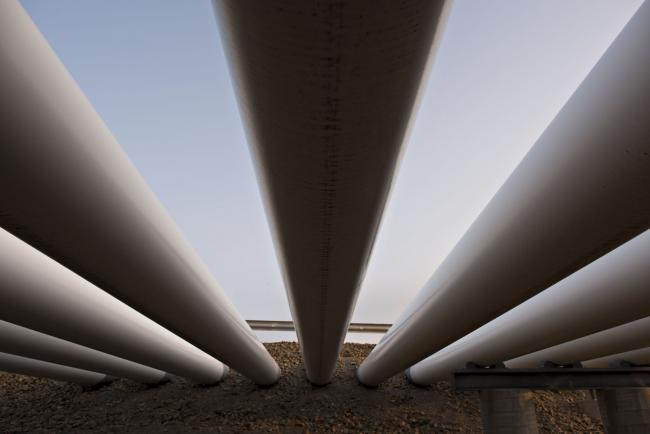(Bloomberg) -- Oil touched its highest level since October 2014 as the International Energy Agency said the market looks tighter than previously thought, with demand proving resilient to omicron.
Futures in New York closed up 1.8% on Wednesday, with the IEA saying in a report that oil demand is on track to hit pre-pandemic levels. The agency also said global stockpiles are falling rapidly as demand remains robust and the OPEC+ coalition struggles to revive output. That’s a further indication that production could be lower, or consumption could be higher, than the market estimates, it said.
“The market has already priced in a tighter market in 2022, and the IEA and other agencies are just catching up to that,”said Rebecca Babin, senior energy trader at CIBC Private Wealth Management. Oil could still extend its rally as “event risks in a tight market can cause outsized moves to the upside.”
Also see: If Oil Hits $100 a Barrel, Traders Hit the Jackpot: Javier Blas
An explosion on Tuesday knocked out a key crude pipeline running from Iraq to Turkey, sending futures trading above $87 a barrel.
Oil markets have tightened in recent weeks due to stronger-than-expected demand and outages in OPEC+ producers including Libya, with buyers in Asia paying sharply higher premiums for spot cargoes.
Additionally, concerns about the impact of the omicron variant of Covid-19 have eased, global stockpiles are shrinking and unrest in the Middle East is back on the radar after a drone attack on oil facilities in the United Arab Emirates. The sizzling start to the year has prompted Goldman Sachs Group Inc (NYSE:GS). to boost its forecasts for global benchmark Brent, predicting $100 oil in the third quarter.
Oil’s rally, however, poses a challenge for consuming nations and central banks as they try to stave off inflation while supporting global growth. The White House plans to continue to monitor prices and hold discussions with the Organization of Petroleum Exporting Countries and its allies as needed, a National Security Council spokeswoman said Tuesday.
See also: Key Oil Spread Jumps After Iraq Pipe Blast Buoys Prices: Chart
The IEA said in its report that global oil inventories have plunged over the last 12 months. Stockpiles are down by more than a billion barrels since the peak of May 2020 and are well below pre-pandemic levels, according to the report.
“Mobility and demand overall has held up relatively well,” Daniel Hynes, senior commodity strategist at Australia and New Zealand Banking Group Ltd., said in a Bloomberg Television interview. The “supply picture is looking decidedly tight and that’s going to keep those markets pretty well supported,” he added.
©2022 Bloomberg L.P.
